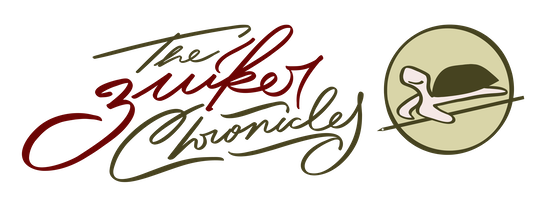Suspended in the world
by Anton Zuiker on August 23, 2025
Pleasant weather this past week allowed me to take my morning coffee onto the porch, where I positioned an Adirondack chair to look out through the wire railing into the forest behind the house. Inside, I’ve been reorganizing my desk space to address the clutter, and I’d uncovered a small book with a blue cover, Think Little, by Wendell Berry. I first encountered the farmer-novelist-poet Berry in the pages of Modern Farmer magazine in 2016 (a quote about the joy of “people who talk for pleasure, as opposed to people who talk to communicate”), and I’ve had this book for a few years, so it felt right to spend a few minutes each morning reading the two essays in lieu of of my normal meditation.
The second essay, A Native Hill, was the more interesting of the two. Berry wrote that in 1968, two years before I was born, but the essay felt fresh, as if Berry was telling me in real time about his walk along the creek near his home in Kentucky.
I began more seriously than ever to learn the names of things – the wild plants and animals, the natural processes, the local places – and to articulate my observations and memories.
That reminded me of Verlyn Klinkenborg’s instruction: “It’s your business to know the names of things, to recover them if necessary and use them.” I blogged here about how Klinkenborg’s book “Several short sentences about writing” inspired me to look closer at the trees and plants and animals around our house.
What I noticed this week while reading from the porch was that our forest is currently inhabited by many American robins (Turdus migratorius), which hunt along the ground and then hurriedly return to mid-level branches in the tall oak trees (many different varieties of white oak).
I also noticed how different I felt by the end of the week, having finished the book, spent time outside, and realized I had had the space, both physical and mental, to be suspended in the physical world. On page 88, Berry writes about humankind’s conceit that we can make and mold the earth to our violent wishes.
We have lived by the assumption that what was good for us would be good for the world. And this has been based on the even flimsier assumption that we could know with any certainty what was good even for us.
I enjoyed my morning seated reading meditation this week. The woods beyond kept calling me to walk, so that’s what I plan to do next week, with early-morning tour of the forest as the robins begin to stir.
Next post: First goal
Previous post: Teeth talkGo to HOME

